Course leaflets here
The Faculty of Humanities & Citizenship includes the Geography, History, Modern Studies and Religious, Moral & Philosophical Studies (RMPS). The courses provided by these departments develop research, analytical, evaluative and organisational skills and aim to help young people develop an understanding of the changing world around them with focus on physical, social, economical, political and philosophical issues. The subjects studied in these departments have broadly similar approaches, methodologies and skills.
Geography Department
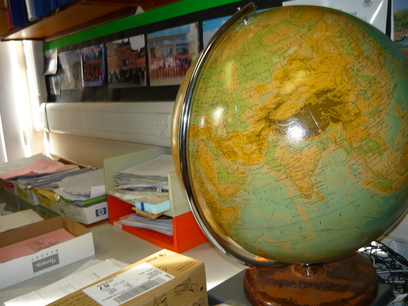
In S1 to S3 Geography provides opportunities to discover the impact forces such as ice, rivers, wind, coasts and tectonics have on the landscape and develop an understanding of the interaction between these forces.
Geography also builds on previous knowledge of different population structures through exploring aspects such as demographics, migration and the effects of population growth.
Mapping skills are developed progressively using maps in a variety of contexts. The main stages of progression within these skills would be: using and making simple maps; using and interpreting maps; using thematic maps and mapping conventions; using map information to support conclusions. Throughout this process, learners will develop their own mental map to be able to recognise and locate a range of key features at the local, national and global levels.
In the Senior school, S4 to S6, Geography continues to build on previous knowledge of the world’s physical features, including landscape and atmosphere -how they change and how people live with the landscape and atmosphere. The subject looks at weather, the environment and the forces that drive the planet, from tides to volcanoes.
As well as using maps and diagrams, learners will get involved in practical fieldwork activities – to help them observe Geography in action. They will develop skills in research, analysis, presentation and solving problems.
Geography in S1 to S3 is studied under the curricular area of Social Studies – People, Place and Environment.
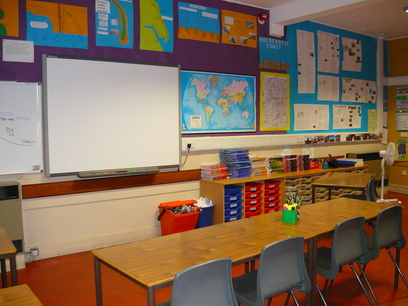
S1: Pupils study Geography in 2 six week blocks as part of their Social Studies rota.
Theme 1 – Map Skills – learning to use ordnance survey maps and Atlases to measure distance, direction and heights. Pupils also learn how to describe the Physical and Human landscapes around them, using maps.
Theme 2 – Weather and Climate – Pupils learn how the weather is measured and how the weather affects people. They also look at climatic areas around the world.
S2: Pupils study Geography in 2 six week blocks as part of their Social Studies rota.
Theme 1 – Natural Hazards – pupils study examples of natural hazards such as volcanoes, earthquakes and tornadoes. They look at the causes, effects and coping strategies for people living near these hazards.
Theme 2 – Rich World/Poor World – pupils carry out a comparative study of India and UK, comparing climate and life in rural and urban areas.
S3: Pupils study Geography in 2 six week blocks as part of their Social Studies rota.
Theme 1 – Aberdeenshire from mountain to sea – pupils study the glaciated and coastal landscapes of Aberdeenshire, studying their formation, land use and conflicts of land use.
Theme 2 – Aberdeenshire – Earning a Living – pupils study the economy of the local area – the industries and economic activities through carrying out a range of fieldwork tasks e.g. visit to GlenDronach distillery, interviewing local people and looking at land use in Turriff.
S4 – S6
National 4/5
National 4-5 Units studied include:
1 Physical Environments – this includes studying the weather in greater depth, finding out how rivers have shaped parts of the UK and how Upland Limestone scenery has been formed. Pupils also study how the land in these areas is used. As part of this they find out about land use conflicts and who protects the landscape for future generations.
2 Human Environments – This involves pupils looking at how population is spread out across the world. It also involves pupils studying developed and developing countries, looking at the issues facing people in changing urban and rural landscapes.
3 Global Issues – Two global issues will be studied:
- Environmental Hazards looking at earthquakes, volcanoes and tropical storms.
- Impact of human activity on the natural environment which looks at Tundra and Equatorial climates and their ecosystems. It also looks at how these areas are used, misused and managed.
The N4-5 Added Value Assignment Pupils undertake research including field visits and write up a report based on their findings – see below for details.
Higher:
Physical Environment topics – Atmosphere, Lithosphere, Hydrosphere and Biosphere.
Human Environment topics – Rural, Urban, Population and Industry.
Environmental Interactions – River Basin Management and Urban Change and Its Management.
Advanced Higher:
Geographical Study – This is an investigative exercise and it requires pupils to research a topic in depth. This may be undertaken in the local area. They will have to use appropriate techniques to analyse, evaluate and present information and their findings. The Geographical Study will involve the candidate in collecting and processing information from field studies and/or published sources such as census data. The Geographical Study is worth 40% of the final award.
Geographical Issues – This is an essay which critically evaluates an issue from a geographical perspective. This is worth 30% of the final award.
Geographical Methods and Techniques – pupils have to undertake a variety of fieldwork and statistical techniques and a number of map work techniques which will be used in the Geographical Study and tested in the final exam.
Fieldwork
This is an important part of Geography; studying the real or natural world and how people interact with it is a main focus of the subject. We have a well-planned programme which we are always looking to enhance:
S1 to S3 Geography pupils carry out fieldwork exercises in the local area.
National 4/ National 5
In June or September, the new National 4 and 5 classes in Geography go to the Cairngorms National Park, to gather valuable field work data for the assignment or added value component of their course. (worth 25% of the overall award at National 5).
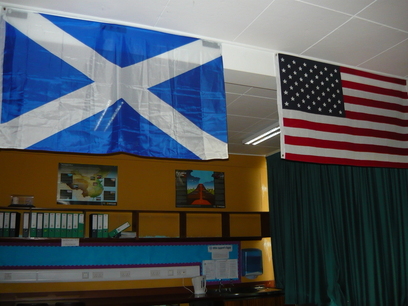
Higher
Higher Geography pupils are given the opportunity to spend two days in Edinburgh, looking at how the city has changed and how this change is managed. Edinburgh is a case study city which pupils will use in their exams.
Advanced Higher Geography pupils are given the opportunity to join pupils from across Aberdeenshire for a three day field work course at Kindrogan Field Studies centre, covering the Geographical Methods and Techniques which they should be familiar with in order to carry out their own Geographical Study, pass the Geographical Methods and Techniques. NAB (national assessment bank item) and be able to write about these in the exams.
The Geography department also offers a trip during the activities week. This trip has included travelling to Barcelona and London.
History Department
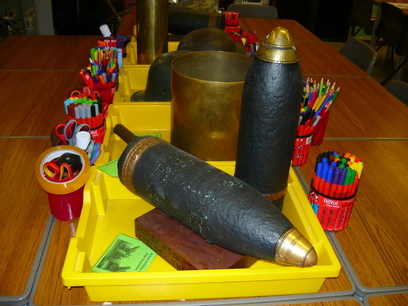
History is the study of past events and societies.
As well as giving pupils useful general knowledge about the past, a History course helps them to understand the world we live in now and form opinions about issues seen in the media.
History S1-6:
- Provides opportunities through fieldwork for first hand investigation of heritage sites across Scotland
- Builds knowledge and understanding of historical events, both local to global.
- Develops skills for the future, including literacy, numeracy, ICT, problem solving, team work, thinking and enquiry skills.
- Values pupils’ views when making decisions about difficult issues.
Permeating the S1-6 courses are three core aspects:
- Local History
- National History
- International History
Course outline
S1-3 – Broad General
As part of the broad general education pupils study History in 2 six week blocks in S1, S2 and S3 as part of their Social Studies rota
S1 – 2 main themes are explored.
Theme 1 – Scotland 400AD -1066 – this unit explores the development of the Kingdom of Scotland and examines the impact of the Romans, the Celts, Picts on the formation of Scotland.
Theme 2 – Scotland 1066-1328AD – this unit examines the impact of the Norman invasion and then the events of the Scottish Wars of Independence
S2 – 2 main themes are explored
Theme 1 – Scotland from 1500AD to 1760 covering the events of the Reformation, Mary Queen of Scots, the Union of the Crowns, the Act of Union, the causes, course and consequences of the Jacobite rebellions with a visit to the battlefield at Culloden.
Theme 2 –Scotland & Britain during the Great War 1914-1918. The centenary of this conflict provides an appropriate opportunity to examine the impact of the war on our local communities. The study includes visits to the local memorials and war graves in local cemeteries as well as a project involving the Gordon Highlanders Museum. There is also the opportunity to participate in the study tour of the battlefields in France & Belgium.
S3 – 2 main themes are explored
Theme 1 – Hitler’s Germany – an investigation into the rise of the Nazis, the nature of life in Nazi Germany covering the period 1918-1945. The unit involves a study of the Holocaust.
Theme 2 – The Cold War – topics include conflict and cooperation between 1945-1990 focussing on the development of the Cold War, events during this period including; The Nuclear Arms Race, The Cuban Missile Crisis, The Vietnam War, The Era of Détente and causes and consequences of the fall of the Berlin Wall
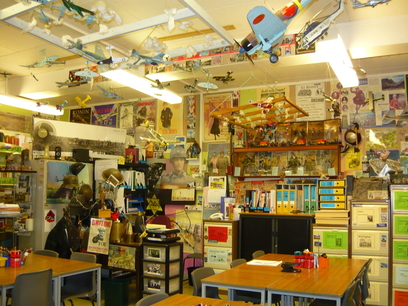
S4-6 – Senior Phase
History offers a range of options for pupils in the senior phase (S4-6) during which they prepare for National Qualifications.
National 4-5:
The course is made up of three main aspects:
Scottish History – options:
Mary Queen of Scots, and the Reformation 1542-1587
Migration and Empire 1830-1939
British History – options:
The Atlantic Slave Trade
The Making of Modern Britain
European & World – options:
Appeasement and the Road to War, 1918-1939
Free at Last? Civil Rights in the USA, 1918-1968
The N4-5 Added Value Assignment Pupils undertake research including a field visit and write up a report based on their findings – see below for details
Higher: Topics covered are:
The Crusades 1071-1204
The Scottish Wars of Independence 1286-1328
The Atlantic Slave Trade
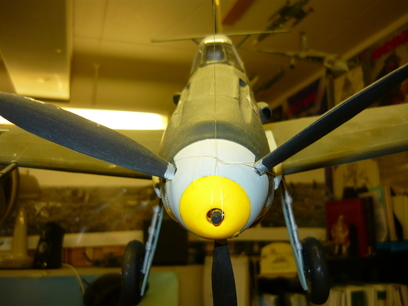
Advanced Higher: this comprises a detailed study of Germany from the end of World War 1 to the outbreak of World War 2, assessed by a 4000 word dissertation as well as an external exam.
Educational Field Visits
This is an important part of History. We have a well planned programme which we are always looking to enhance:
Local Heritage Society – Cottage Museum & Old Post Office in S1
Culloden – visit to the battlefield in S2
Gordon Highlanders Museum – hands on experiences with artefacts and tours by ‘old soldiers’ in S2/3
Edinburgh – 2 day residential field trip for the National 4-5 assignment with visits including: Edinburgh castle, the Scottish Parliament, National Museum of Scotland, Holyrood Palace in S4/5/6
Speakers:
Bob Holsman, Historical Re-enactor from Historic Scotland: Bob is an expert on World War One and arrives in school as a soldier in full kit and uniform to explain weapons and trench warfare and then becomes a Roman auxiliary describing life on Hadrian’s Wall in 400AD
Battlescar productions – Historical re-enactors with living history presentations on a range of historical periods including Wallace & Bruce and the Jacobites.
Activity Week Opportunities
The History Department offer visits as part of the Activity week. These include:
France & Belgium – Bi-Annual 10 day visit to the battlefields of WWI to cover the battle of the Somme in France and the battles of Ypres in Belgium
Modern Studies Department
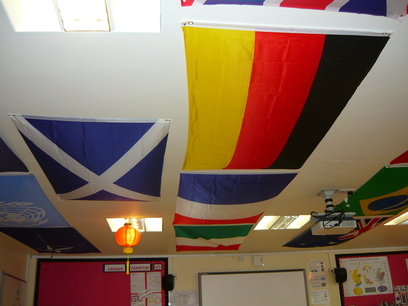
Modern Studies S1-6:
- Provides opportunities through fieldwork for first hand investigation
- Builds knowledge and understanding of current events, both local to global.
- Develops skills for the future, including literacy, numeracy, ICT, problem solving, team work, thinking and enquiry skills.
- Values pupils’ views when making decisions about difficult issues.
Permeating the S1-6 courses are three core aspects:
- Local Society
- Politics and Society in Scotland & Britain
- International Issues
Course outline
S1-3 – Broad General
As part of the broad general education pupils study Modern Studies in 2 six week blocks in S1, S2 and S3 as part of their Social Studies rota
Course Outline
S1: 2 main themes are explored.
Theme 1 – Democracy & Dictatorships – a comparative study of the features of these systems of Government.
Theme 2 – Crime & the Law – an examination of the nature of justice system and role of the police in our society.
S2: 2 main themes are explored
Theme 1 – China – a study of government, society and economic issues of this new super state and a discussion of its future role in world politics.
Theme 2 – Terrorism – “one man’s terrorist is another man’s freedom fighter” a study of the nature of terrorism and debate over its place in the modern world
S3 –2 main themes are explored
Theme 1 – British Politics – a study of electoral systems, political parties and the role of democracy in UK society
Theme 2 – USA – a study of politics and society including focus on ethnic groups in American society
S4-6 – Senior Phase
Modern Studies offers a range of options for pupils in the senior phase (S4-6) during which they prepare for National Qualifications.
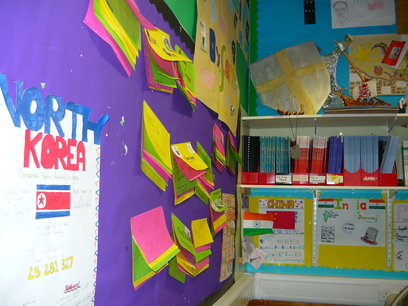
National 4-5:
The courses are made up of three main aspects:
Democracy in Scotland and the UK – the focus being Politics in Scotland; looking at the work of people who represent us in a democracy, how people can participate in politics and the role of external groups such as pressure groups and the media.
Social Issues – the focus being Crime and the Law. We will investigate causes and effects of crime in the UK as well as crime trends and patterns. We will also look at the legal side of the crime including the role of the police and the court system in preventing crime and punishing and rehabilitating offenders.
International Issues – the focus being the development of Africa. We will look at the needs of developing countries and how international organisations and other nations can help meet the needs of less developed nations.
The N4-5 Added Value Assignment
Pupils undertake research including a field visit to sites including the Scottish Parliament, High Court and street surveys and write up a report based on their findings – see below for details
Higher Modern Studies:
Scottish and British Politics – the focus areas include: Electoral systems used in elections in the UK, voting and factors influencing the development of political attitudes and how these have changed over the years.
Health & Wealth – the focus areas include contemporary issues in British society influencing the provision of welfare policies and the growing inequalities experienced in our society today. We look at what causes these inequalities as well as what can be done to reduce them. This unit includes a policy brief decision making exercise using numerous sources.
International States USA – politics and society: an investigation into life in the USA including the immigration debate, social and economic inequalities and the political system.
China – politics and society: research into changes between tradition and modern day China in terms of politics, inequalities and human rights issues.
Higher Politics: the 3 focus areas are:
Political Theory
This Unit will introduces a range of political concepts and ideologies such as democracy, the state, power, authority and legitimacy as well as comparing here key political ideologies: Conservatism, Liberalism and Socialism
Political Systems
A comparison is made between political structures in the UK with those in either Scotland or the USA. Areas investigated include the judiciary and constitution, political assemblies and the role of the executive and political leader(s).
Political Representation
Explores a variety of elections in the UK, the US Presidential election along with other electoral systems and theories of representation and voting behaviour.
Advanced Higher:
Crime and Law in the UK – focus areas include: causes and effects of crime, the development of the penal system and issues influencing potential changes in the future on how society will deal with those involved in crime.
Pupils will get the opportunity to speak professionals within this topical environment and carry out field work research to courts and prisons across Scotland.
Educational Field Visits
This is an important part of Modern Studies. We have a well planned programme which we are always looking to enhance:
Banff Sheriff Court (S1) role play into the work of the court system as part of their study of Crime and the Law
Edinburgh – 2 day residential field trip with visits to the Scottish Parliament and High Courts for researching the topics for the Added Value assignment in National 4-5
Prison Visits – the Advanced Higher Class participate in trips to local and national prisons as part of their research
Speakers
Local Politicians – MP’s, MSP’s and Councillors regularly visit classes to discuss their role and to discuss current affairs
Cyrenians – presentations for S1-3 classes looking at social issues
Police – presentations for N4-6 classes on various specific topics
The Modern Studies Department take the lead role in the organisation of Turriff Academy’s participation in Aberdeenshire highly successful Mock Election and Referendum as well as the Mock Trial which is held in the High Courts in Aberdeen.
These projects provide opportunities for pupils to pit their wits against other schools and learn key skills including debating, speech writing and presentations and gaining an understanding of participation and representation.
Activity Week Opportunities
The Modern Studies Department offer visits as part of the Activity week. These include:
London: visits to various cultural and educational sites
China: tour of the country with visits to the Great Wall, Forbidden City and Beijing.
Religious, Moral and Philosophical Studies Department
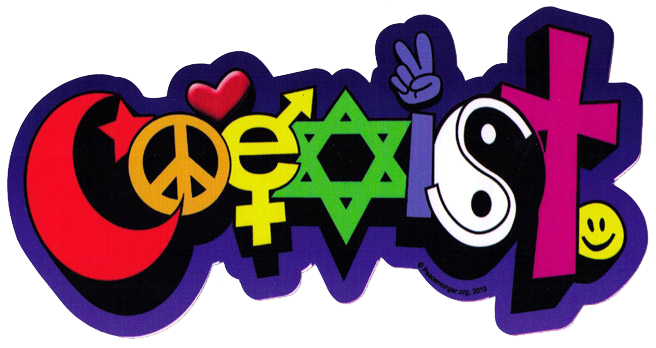
Religious, Moral, & Philosophical Studies (RMPS) has been through many stages getting to its current form. The Scottish Education Act 1872 defined the Scottish education system, a part of which was the provision of Religious Instruction. Education was delivered under the care of the Scottish church, as such the education system reflected those values. Religious Instruction evolved to Religious Education, which most are familiar with having been in such classes when they were in school. The purpose was to educate Scotland in the religious nature of our country. In the 1990’s RE evolved to RME: Religious and Moral Education wherein pupils gained experiences of not only religion but also a variety of moral issues that many of our pupils have themselves experienced. Turriff Academy has offered RMPS at Higher level for many years. In the Higher pupils learn not only how religion is intertwined into the fabric of our society, but also how moral issues shape our culture, and philosophical questions try and evaluate both religions position as well as answers to these moral issues. This became the framework for our department.
This department delivers courses that give all pupils the opportunity to explore their personal beliefs and values, and to develop an appreciation of the beliefs and values of others. They have the opportunity to consider many questions and issues of importance in the world today. They are able to extend their knowledge and understanding of religious, moral and philosophical issues so that they can evaluate ideas and express informed opinions.
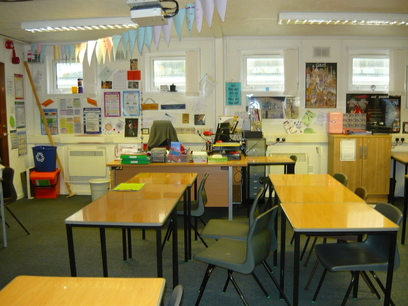
Course Outline
S1 : The course is made up of three core aspects
- Introduction to RMPS & World Religions
- Signs and Symbols Unit
- Festivals
S2 : The course is made up of four core aspects
- Animal Ethics and Morality.
- Child Trafficking Unit.
- Inspire/Aspire poster competition.
- Bridging Unit into S3 on the holocaust.
S3: We study The Religion,Values and Beliefs Award
The Religion, Belief and Values Award helps learners to deepen their knowledge and understanding of how religion and values can shape and contribute to the lives of individuals and communities.
The Award encourages learners to explore and reflect on their personal faith or values, and to deepen their understanding of this through practical engagement in local, national or global communities.
This Award is available at SCQF levels 3,4, 5 and 6.
We cover two units in the Award –
Develop knowledge and understanding of a topic involving religion or religious belief, by:
1.1 Choosing a topic involving religion or religious belief, with non-directive supervision
1.2 Analysing the topic, in detailed terms and explaining relevant theoretical or abstract ideas
1.3 Evaluating a religious belief or a religious viewpoint relevant to the chosen topic, in detailed terms and explaining relevant theoretical or abstract ideas
1.4 Evaluating an alternative viewpoint relevant to the chosen topic, either religious or independent of religious belief, in detailed terms and explaining relevant theoretical or abstract ideas
1.5 Analysing and explaining relevant source material
And
2 Reflect on their faith or values in response to the topic, by:
2.1 Explaining how their personal viewpoint on the topic compares with a religious viewpoint and a viewpoint independent of religious belief, in detailed terms and explaining relevant theoretical or abstract ideas
2.2 Presenting a conclusion on how their study of the topic has influenced their personal faith or values, in detailed terms and explaining relevant principles or abstract ideas
2.3 Analysing a relevant view which contrasts with their own and explaining why they disagree, in clear terms and with detailed reference to supporting evidence.
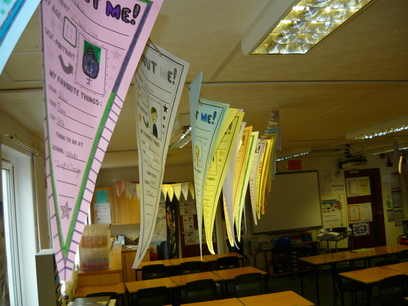
Unit 2: Values in Action
Outcome 1 The learner will:
1 Put their faith or values into action through engagement in the community, by:
1.1 Identifying a practical activity that benefits the local, national or global communities, with non-directive supervision
1.2 Carrying out the activity, with non-directive supervision and working effectively with others as appropriate
Outcome 2 The learner will:
2 Reflect on the activity, by:
2.1 Explaining how the activity demonstrated their faith or values, in detailed terms and explaining theoretical or abstract ideas
2.2 Evaluating how the faith or values they have put into action compare with those found within a world religion today, in detailed terms and explaining theoretical or abstract ideas
2.3 Evaluating how the activity has impacted on other people, in detailed terms 2.4 Evaluating how the activity has influenced their faith or values, in detailed terms.
The whole S3 cohort take part in this new SQA stand-alone qualification.
S4 : Core RMPS is taught to House groups, one period a week for seven weeks.
During the core periods we cover a National 4 unit in Morality. We specifically look at the morality of marriage.
The unit is assessed using an open book internal assessment.
Higher: This course is made up of three units and an assignment which is taught over 5 periods a week.
At Higher we study Religious and Philosophical Questions: An issues of Morality unit, Religion, Medicine and the Body and a World Religion which is Islam.
The Religious and Philosophical Questions section of the course looks specifically at Origins. We look at God as Creator and Sustainer of the Universe and compare this with scientific explanations for Origins, like the Big Bang and Evolution. We also look at how we find out what is real in the Universe by looking at different methods of inquiry for example;
- Scientific Method
- Religious Method
- We also look at the difference between Faith and Reason.
The Higher course lends itself to a more analytical approach where pupils not only study opposing arguments on these topics but also seek to develop their own opinions, thus developing their skills of critical thinking.
World Religion: Islam 
The Islam unit is divided into three main sections;
- Islam: The Human Condition
- Islam: The Goals
- Islam: The Means
In the course we will look at what Muslims believe about Allah, life and the goals that they strive for within their lives. We will study the Islamic view that Life is a Test and that the real reward will be the Afterlife, Akirah.
Our study will take us back in time to the days of Muhammad and we will learn about the Qu’ran and the Hadith as well as Islamic Law in the form of the Shariah.
We will also look at modern problems like Islamaphobia and how this is treated by Muslims and non-Muslims a-like.
Morality Medicine and the Human Body.
Pupils will develop the ability to explain and apply the following key perspectives on moral decision-making.
Utilitarianism – The Greatest Good for the Greatest amount of people.
Following divine command/ religious authority
Sanctity of Life – The Right to Live and the Right to Die
Euthanasia and Assisted Dying – Palliative Care
Use of Embryos – IVF and Pre-Genetic Diagnosis (PGD)
The assignment is worth 30 marks out of a total of 90 marks for the course and thus contributes approximates 33% of the overall marks for the course assessment. The assignment is a new component of the course assessment, in which learners will demonstrate challenge and application by demonstrating skills, knowledge and understanding within the context of a religious, moral or philosophical question or issue. Learners will have a free choice of topic or issue. Research will be undertaken in the classroom and at home. The production of evidence stage will be completed under controlled conditions in 1 hour and 30 minutes. Learners will be able to take a resource sheet, containing notes on evidence and references, into the assessment.
Field trips and visiting speakers are integrated into the course. Depending on time field trips may be arranged to the Aberdeen Mosque and to the Glasgow RMPS conference at Hutchison’s Grammar School. The department invites speakers from various organisations dealing with a range of topics from War to Genetic Engineering. The speakers represent both religious and secular ideas.
